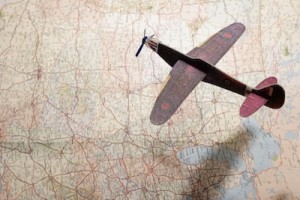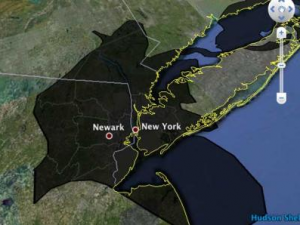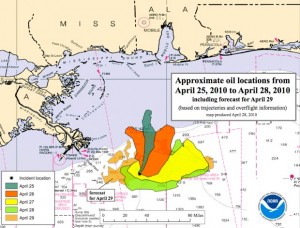A group of small business owners in St. Louis, Missouri plan a “caravan” across the Gulf Coast traveling from Bay St. Louis, Mississippi as far east as Panama City Beach with stops along Mississippi and Alabama coastal communities, including Biloxi, Gulfport, Pascagoula and Grand Bay. The group plans to spend money at local small businesses at each stop and in the process, create a “Gulf Cara-van Kit” to help other cities recreate their project to aid Gulf Coast communities in their recovery from the losses arising from the oil spill. Group members will blog and tweet about their caravan and have published a site, www.gulfcaravan.com, for more information. Called “tourism with a purpose”, the caravan plans local media events to call attention to the need to support the Gulf Coast. They can look forward to a warm welcome as mayors of several of the communities plan to present the group with keys to their cities. I am planning an event in the Gulf Coast this fall; we should all do what we can to show our support.
Posts Tagged ‘Gulf Coast Small Businesses’
Spending Caravan
Wednesday, August 4th, 2010Gulf Coast Environmental and Economic Catastrophe
Monday, May 10th, 2010The oil spill resulting from the April 20 explosion on the Deepwater Horizon now covers at least 2500 square miles of water surface. To help visualize the size of the spill, Paul Rademacher created Google Map mashups that show the spill placed over various cities. This image shows the spill if New York were the epicenter. As you can see, it is enormous, covering landmass in four states. As it is on the Gulf Coast, tar balls from the spill are washing up on local beaches with damage evident in Alabama, Louisiana and Mississippi. BP has offered US-based fishermen (the spill has not yet reached international waters) a one-month pay settlement package as compensation. All of the owners of Louisiana small fishing businesses with whom I have spoken have declined the offer, as their ultimate income loss will likely extend over a much longer period. It is important to remember that it is not just the commercial fishing businesses that will be affected. Many downstream businesses, such as seafood retailers and processing plants, face serious financial losses.
Yesterday the fishing waters in the Gulf were closed. With an annual harvest of more than one billion pounds of fish and shellfish, that equates to a lost harvest of 273,000 pounds each day. In response to this economic loss, the Small Business Administration is offering Economic Injury Disaster loans for small businesses in 13 Louisiana parishes and two Mississippi counties. The loans will offer working capital for up to $2 million at a 4% interest rate for a term of up to 30 years. Existing SBA borrowers who have been affected by the oil spill may request a deferment of their loans.
I explain the issues around the SBA’s Economic Injury Disaster Loans in Prepare for the Worst, Plan for the Best: Disaster Preparedness and Recovery for Small Businesses (Wiley, second edition 2009). I am particularly concerned in this case that insurance recoveries for the Gulf Coast fishing businesses may be inadequate to retire the proceeds of the SBA loans. Indeed, when I was just in Louisiana two weeks ago, I learned that insurance for small fishing businesses continues to remain unaffordable in the post-Katrina era. We do have a federal government fund established to finance the cleanup of oil spills. As it is funded by an eight-cent tax levied on each barrel of oil, it is insufficient for an environmental catastrophe such as this one. We need a comprehensive approach to disaster finance in the U.S. and one that is self-sustaining.
The Disaster Before Traditional Disaster Season
Thursday, April 29th, 2010The 2010 hurricane season does not start for another month, but small businesses in the Gulf Coast states are already facing a major threat to their livelihoods. More than 40,000 barrels of oil have been leaking into the Gulf of Mexico since April 20, when an explosion destroyed the Deepwater Horizon, which was drilling within 50 miles of Louisiana’s coastline. Eleven workers on that rig are unaccounted for and presumed dead. The cause of the explosion is not yet known. Crews are working round the clock to contain the expanding oil slick; deepwater robots are maneuvering to close the platform’s submerged valves. Burning the slick has been proposed as an option, but that creates air pollution and may further damage marine life. It could take months to contain the damage. Meanwhile, the oil spill could reach the shoreline of the Gulf Coast within days, threatening the oyster and shrimp industries and tourism. This comes at a time when the fishing industry is already struggling for its survival. It is threatened by lower-cost imports from Southeast Asia and unaffordable insurance at home. The fishing, shrimp and oyster industries are a major part of the Gulf Coast economy and have not yet recovered from the losses they sustained in Hurricane Katrina. We can only hope that the oil leakage is stopped as soon as possible and damages are minimized.


